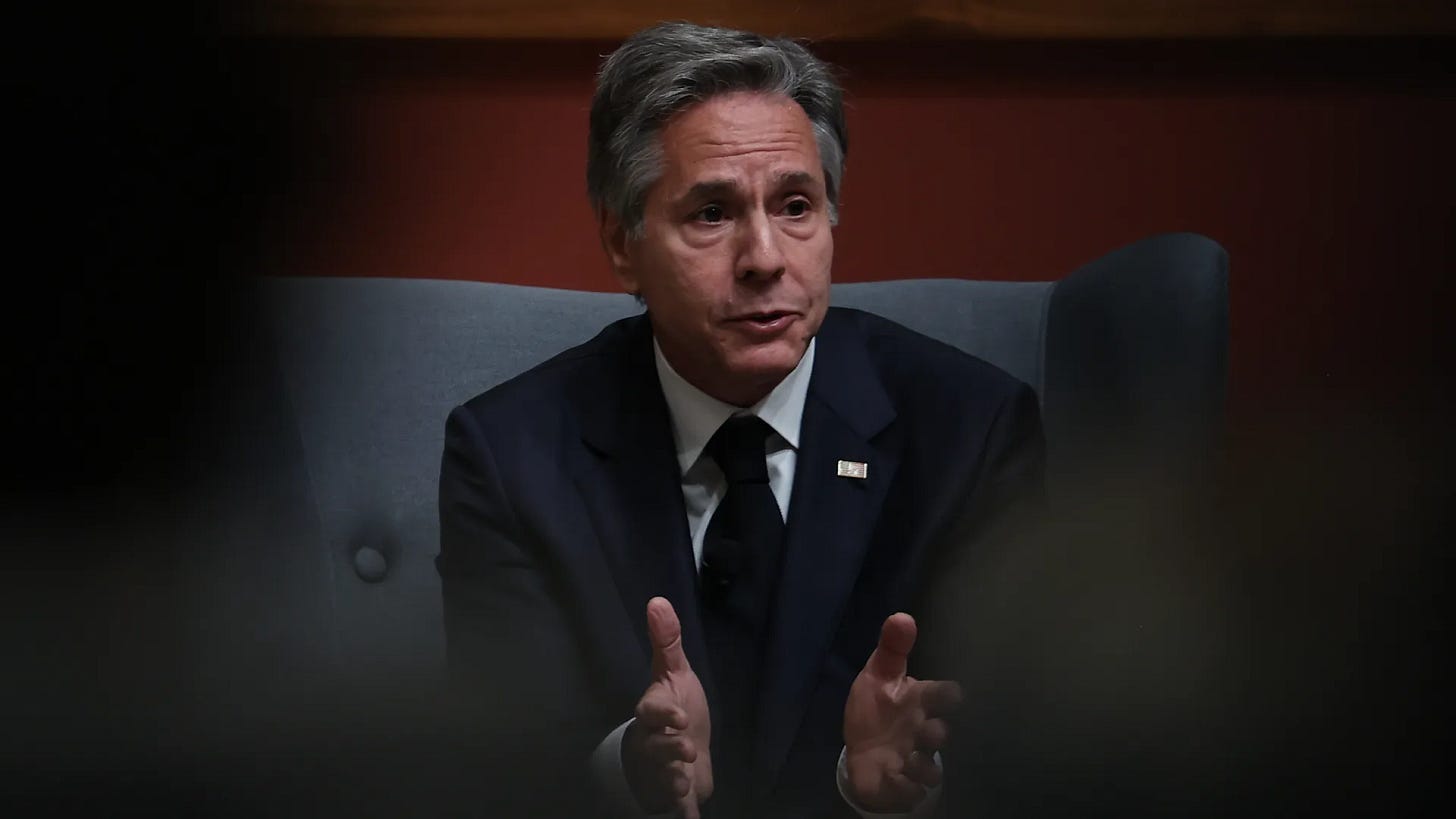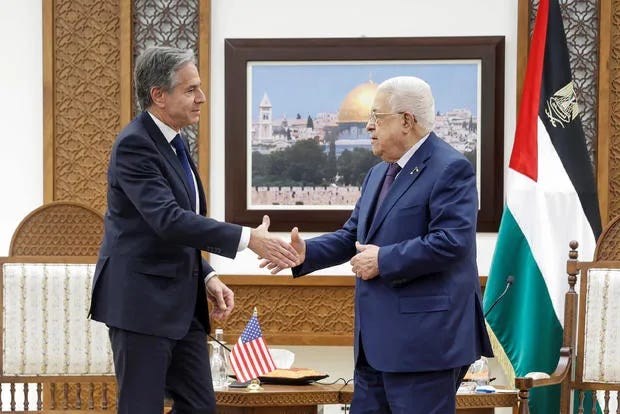Blinken's Diplomatic Efforts Amid Israel-Palestine Conflict
Beyond polite greetings, both men met in silence before the cameras, and the meeting concluded without any public remarks.

Blinken's Meeting with Abbas
During their meeting, Secretary of State Antony Blinken and Palestinian President Mahmoud Abbas engaged in discussions of critical importance. Blinken reiterated the United States' unwavering commitment to providing life-saving humanitarian aid to Gaza, which has been grappling with dire humanitarian crises during the ongoing Israel-Palestine conflict.
He emphasized the need to prevent the forcible displacement of Palestinian civilians, a pressing concern in the conflict. Additionally, the leaders addressed the necessity of restoring stability in the West Bank and tackling the issue of extremist violence against Palestinians, particularly by Israeli settlers. These talks took place in the West Bank city of Ramallah, marking a significant moment in Blinken's third day of his Middle East tour, which also included stops in Israel and Jordan.
Blinken's Middle East Tour
Blinken's Middle East tour has been a multifaceted diplomatic effort to address the complex and longstanding Israel-Palestine conflict. His visit to Israel and the West Bank aimed to navigate the fine line of showing support for Israel's right to defend itself while stressing the importance of adhering to international laws governing armed conflict.
Furthermore, Blinken advocated for increased humanitarian aid to Gaza, where the civilian population has been severely affected by the ongoing hostilities. One of his notable proposals was the suggestion for Israel to implement rolling humanitarian pauses in its airstrikes and ground operations.
These pauses would serve the dual purpose of safeguarding civilians, enabling the delivery of humanitarian aid, and facilitating the evacuation of foreign nationals from Gaza. However, it's worth noting that Prime Minister Benjamin Netanyahu of Israel has thus far rejected this proposal.

U.S. Officials' Approach
U.S. officials are employing a nuanced approach in their efforts to mediate the Israel-Palestine conflict. Recognizing the challenges of achieving a cease-fire, they are seeking to align their efforts with Israel's strategic interests to potentially soften Prime Minister Netanyahu's opposition.
The growing death toll and international outrage have led to widespread protests, from Washington to Berlin, calling for an immediate cease-fire. However, Secretary Blinken and his team have opted for an alternative strategy. They believe that a cease-fire, if prematurely implemented, could allow Hamas, the Palestinian Islamist group, to maintain its grip on power and regroup, potentially leading to a resurgence of conflict.
Instead, Blinken has emphasized the importance of temporary humanitarian pauses in the fighting, which would not only protect civilians but also enable the delivery of essential aid to those in need. These pauses would align with Israel's objective of defeating Hamas while minimizing the suffering of the civilian population.
Arab Ministers' Demands
Blinken's diplomatic journey also took him to a meeting with Arab foreign ministers in Amman, Jordan. During this high-level discussion, the United States encountered a unified demand for a cease-fire from representatives of multiple Arab nations, including Jordan, Egypt, Saudi Arabia, Qatar, and the United Arab Emirates.
The Arab ministers emphasized the urgency of halting the hostilities and ensuring the steady flow of humanitarian aid to Gaza, where the humanitarian situation had deteriorated significantly. The call for a cease-fire echoed the widespread international appeal for an end to the violence. However, Blinken expressed the United States' stance, stating that they would not actively advocate for a cease-fire at this time.
Their perspective is rooted in concerns that a cease-fire could inadvertently empower Hamas and allow them to regroup, possibly leading to a resurgence of violence similar to what occurred on October 7th. Instead, Blinken emphasized the importance of temporary humanitarian pauses in the fighting, allowing Israel to achieve its objective of defeating Hamas while also ensuring the safety of civilians.
Arab Priorities
Arab officials attending the meeting with Blinken underscored that the current priority should be to stop the killing and restore a steady flow of humanitarian aid. Jordanian Foreign Minister Ayman al-Safadi pointed out the premature nature of discussing Gaza's post-war future, emphasizing the immediate need to address urgent issues at hand.
The humanitarian crisis unfolding in Gaza, coupled with the rising death toll and widespread destruction, has left little room for contemplating long-term solutions. Arab leaders are focused on immediate relief efforts and de-escalation of the conflict. It is clear that the primary concern is the well-being of Palestinian civilians in Gaza, who have been enduring the devastating consequences of the ongoing hostilities.


